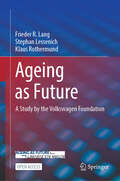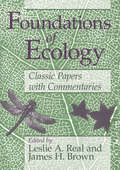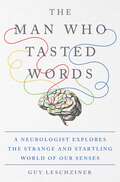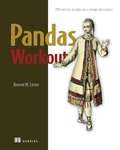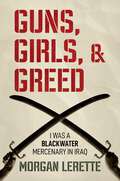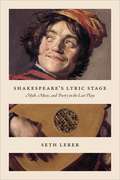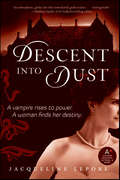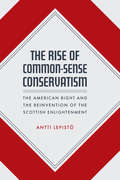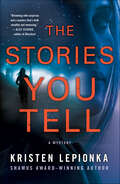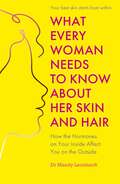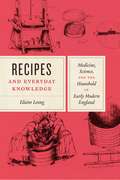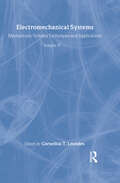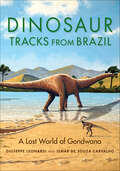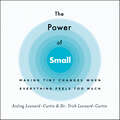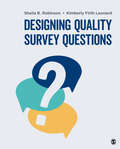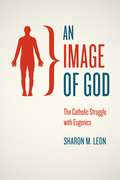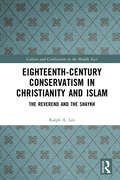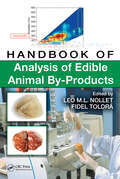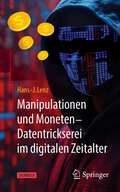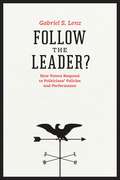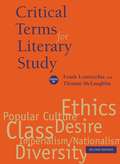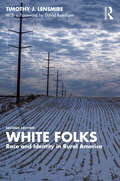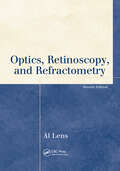- Table View
- List View
Ageing as Future: A Study by the Volkswagen Foundation
by Stephan Lessenich Frieder R. Lang Klaus RothermundContemporary societies are aging – but what does that mean? Is this something bad? And can societies age as a whole? By bringing together psychological, gerontological, and sociological findings, this open access book opens up a hitherto unique, multifaceted, and realistic view of the phenomenon of old age and the process of aging. The volume is based on the results of the project “Ageing as Future”, a long-term project network (2007-2021) involving a total of more than 30 scientists worldwide. The focus of the project was threefold: A first issue was concerned with how views on aging influence development in old age; secondly, the project analyzed determinants and consequences of provision for old age; and thirdly, it investigated the different ways in which aging is shaped by managing time in old age. For more than a decade, the authors conducted quantitative and qualitative studies, involving large samples from three different continents. The results show that one-sided views of old age – whether negative stereotypes or positive exaggerations – do not do justice to the complexity of the experience of aging. Based on these results, the authors plead for individual and societal acceptance of the social fact of aging – and for the right to live an autonomous and dignified life in old age just as in other phases of life. Ageing as Future: A study by the Volkswagen Foundation presents findings from a unique large international study that are of interest to aging researchers around the world: academically, socio-politically, practically, and personally. Whether old or young, the book encourages one to question one's own views of aging. When reading this book, it becomes obvious that old age is a highly diverse experience, depending on a host of societal and individual factors.
Foundations of Ecology: \Classic Papers with Commentaries
by Leslie A. Real and James H. BrownAssembled here for the first time in one volume are forty classic papers that have laid the foundations of modern ecology. Whether by posing new problems, demonstrating important effects, or stimulating new research, these papers have made substantial contributions to an understanding of ecological processes, and they continue to influence the field today. The papers span nearly nine decades of ecological research, from 1887 on, and are organized in six sections: foundational papers, theoretical advances, synthetic statements, methodological developments, field studies, and ecological experiments. Selections range from Connell's elegant account of experiments with barnacles to Watt's encyclopedic natural history, from a visionary exposition by Grinnell of the concept of niche to a seminal essay by Hutchinson on diversity. Six original essays by contemporary ecologists and a historian of ecology place the selections in context and discuss their continued relevance to current research. This combination of classic papers and fresh commentaries makes Foundations of Ecology both a convenient reference to papers often cited today and an essential guide to the intellectual and conceptual roots of the field. Published with the Ecological Society of America.
The Man Who Tasted Words: A Neurologist Explores the Strange and Startling World of Our Senses
by Dr. Guy LeschzinerIn The Man Who Tasted Words, Guy Leschziner leads readers through the senses and how, through them, our brain understands or misunderstands the world around us.Vision, hearing, taste, smell, and touch are what we rely on to perceive the reality of our world. Our senses are the conduits that bring us the scent of a freshly brewed cup of coffee or the notes of a favorite song suddenly playing on the radio. But are they really that reliable? The Man Who Tasted Words shows that what we perceive to be absolute truths of the world around us is actually a complex internal reconstruction by our minds and nervous systems. The translation into experiences with conscious meaning—the pattern of light and dark on the retina that is transformed into the face of a loved one, for instance—is a process that is invisible, undetected by ourselves and, in most cases, completely out of our control.In The Man Who Tasted Words, neurologist Guy Leschziner explores how our nervous systems define our worlds and how we can, in fact, be victims of falsehoods perpetrated by our own brains. In his moving and lyrical chronicles of lives turned upside down by a disruption in one or more of their five senses, he introduces readers to extraordinary individuals, like one man who actually “tasted” words, and shows us how sensory disruptions like that have played havoc, not only with their view of the world, but with their relationships as well. The cases Leschziner shares in The Man Who Tasted Words are extreme, but they are also human, and teach us how our lives and what we perceive as reality are both ultimately defined by the complexities of our nervous systems.
Pandas Workout: 200 exercises to make you a stronger data analyst
by Reuven LernerPractice makes perfect pandas!Work out your pandas skills against dozens of real-world challenges, each carefully designed to build an intuitive knowledge of essential pandas tasks. In Pandas Workout you&’ll learn how to: Clean your data for accurate analysis Work with rows and columns for retrieving and assigning data Handle indexes, including hierarchical indexes Read and write data with a number of common formats, such as CSV and JSON Process and manipulate textual data from within pandas Work with dates and times in pandas Perform aggregate calculations on selected subsets of data Produce attractive and useful visualizations that make your data come alive Pandas Workout hones your pandas skills to a professional-level through two hundred exercises, each designed to strengthen your pandas skills. You&’ll test your abilities against common pandas challenges such as importing and exporting, data cleaning, visualization, and performance optimization. Each exercise utilizes a real-world scenario based on real-world data, from tracking the parking tickets in New York City, to working out which country makes the best wines. You&’ll soon find your pandas skills becoming second nature—no more trips to StackOverflow for what is now a natural part of your skillset. About the technology Python&’s pandas library can massively reduce the time you spend analyzing, cleaning, exploring, and manipulating data. And the only path to pandas mastery is practice, practice, and, you guessed it, more practice. In this book, Python guru Reuven Lerner is your personal trainer and guide through over 200 exercises guaranteed to boost your pandas skills. About the book Pandas Workout is a thoughtful collection of practice problems, challenges, and mini-projects designed to build your data analysis skills using Python and pandas. The workouts use realistic data from many sources: the New York taxi fleet, Olympic athletes, SAT scores, oil prices, and more. Each can be completed in ten minutes or less. You&’ll explore pandas&’ rich functionality for string and date/time handling, complex indexing, and visualization, along with practical tips for every stage of a data analysis project. What's inside Clean data with less manual labor Retrieving and assigning data Process and manipulate text Calculations on selected data subsets About the reader For Python programmers and data analysts. About the author Reuven M. Lerner teaches Python and data science around the world and publishes the &“Bamboo Weekly&” newsletter. He is the author of Manning&’s Python Workout (2020). Table of Contents 1 Series 2 Data frames 3 Importing and exporting data 4 Indexes 5 Cleaning data 6 Grouping, joining, and sorting 7 Advanced grouping, joining, and sorting 8 Midway project 9 Strings 10 Dates and times 11 Visualization 12 Performance 13 Final project
Guns, Girls, and Greed: I Was a Blackwater Mercenary in Iraq
by Morgan LeretteGuns, Girls, and Greed is an unvarnished, behind-the-scenes, tell-all account of the scathing and dangerous life of mercenaries at war in Iraq.Experience the world of private contractors conducting high-threat missions for a nascent Iraqi government in the hopes of rebuilding after the fall of Saddam Hussein. With limited support, the men of Blackwater protected US diplomats as the country descended into sectarian violence. It was a hazardous mission complete with rockets, mortars, improvised explosive devices, and not knowing who or where the enemy was. Morgan Lerette&’s irreverently honest memoir shows the good and bad of injecting private armies into active combat zones in the name of diplomacy and digs deep into the bonds of brotherhood created by war. With gut-wrenching tragedy, dark humor, and parties that make Animal House seem like a Disney film, this memoir offers a firsthand perspective on how men act and react in war. Lerette, a private contractor employed by the notorious Blackwater in the early days of the Iraq War, pulls no punches in calling out the incompetence of both the US military and the Department of State during the collapse of Iraq. You can decide if the insertion of private contractors in Iraq assisted or detracted from the war effort and if the costs in blood and treasure were worth the carnage.
Shakespeare's Lyric Stage: Myth, Music, and Poetry in the Last Plays
by Seth LererWhat does it mean to have an emotional response to poetry and music? And, just as important but considered less often, what does it mean not to have such a response? What happens when lyric utterances—which should invite consolation, revelation, and connection—somehow fall short of the listener’s expectations? As Seth Lerer shows in this pioneering book, Shakespeare’s late plays invite us to contemplate that very question, offering up lyric as a displaced and sometimes desperate antidote to situations of duress or powerlessness. Lerer argues that the theme of lyric misalignment running throughout The Tempest, The Winter’s Tale, Henry VIII, and Cymbeline serves a political purpose, a last-ditch effort at transformation for characters and audiences who had lived through witch-hunting, plague, regime change, political conspiracies, and public executions. A deep dive into the relationship between aesthetics and politics, this book also explores what Shakespearean lyric is able to recuperate for these “victims of history” by virtue of its disjointed utterances. To this end, Lerer establishes the concept of mythic lyricism: an estranging use of songs and poetry that functions to recreate the past as present, to empower the mythic dead, and to restore a bit of magic to the commonplaces and commodities of Jacobean England. Reading against the devotion to form and prosody common in Shakespeare scholarship, Lerer’s account of lyric utterance’s vexed role in his late works offers new ways to understand generational distance and cultural change throughout the playwright’s oeuvre.
Descent into Dust (Emma Andrews series #1)
by Jacqueline Lepore“Descent into Dust is an atmospheric, gothic tale that immediately grabs readers with the startling sincerity of being trusted with a very, very dark secret….An unforgettable read.”—Kathryn Smith, USA Today bestselling authorA young widow with an uncertain inheritance; a mysterious guest with unclear motives; a child in peril; and the dark, rain-lashed moors—Descent into Dust begins the Extraordinary Adventures of Emma Andrews, Victorian Lady and Vampire Hunter. The first in a spellbinding historical gothic series, Descent into Dust is ideal for readers of The Historian and Jane Austen fans alike.
The Rise of Common-Sense Conservatism: The American Right and the Reinvention of the Scottish Enlightenment
by Antti LepistöIn the years following the election of Donald Trump—a victory that hinged on the votes of white Midwesterners who were both geographically and culturally distant from the media’s coastal concentrations—there has been a flurry of investigation into the politics of the so-called “common man.” The notion that the salt-of-the-earth purity implied by this appellation is best understood by conservative politicians is no recent development, though. As Antti Lepistö shows in his timely and erudite book, the intellectual wellsprings of conservative “common sense” discourse are both older and more transnational than has been thought. In considering the luminaries of American neoconservative thought—among them Irving Kristol, Gertrude Himmelfarb, James Q. Wilson, and Francis Fukuyama—Lepistö argues that the centrality of their conception of the common man accounts for the enduring power and influence of their thought. Intriguingly, Lepistö locates the roots of this conception in the eighteenth-century Scottish Enlightenment, revealing how leading neoconservatives weaponized the ideas of Adam Smith, Thomas Reid, and David Hume to denounce postwar liberal elites, educational authorities, and social reformers. Their reconfiguration of Scottish Enlightenment ideas ultimately gave rise to a defining force in modern conservative politics: the common sense of the common man. Whether twenty-first-century politicians who invoke the grievances of “the people” are conscious of this unusual lineage or not, Lepistö explains both the persistence of the trope and the complicity of some conservative thinkers with the Trump regime.
The Stories You Tell: A Mystery (Roxane Weary #3)
by Kristen Lepionka"Lepionka is setting a high standard for crime fiction." —Booklist (starred review) on What You Want to SeeThe Stories You Tell is Shamus Award-winning and Anthony and Macavity Award-nominated author Kristen Lepionka’s heart-pounding third novel that will keep readers on the edge of their seats with her signature twists and mile-high stakes.A late-night phone call is never good news, especially when you’re Roxane Weary. This one is from her brother Andrew, whose evening was interrupted by an urgent visit from Addison, a hip young DJ and one-time fling, who turns up at his apartment scared and begging to use his phone. She leaves as quickly as she appeared, but now Andrew is worried—especially when Addison never makes it home and her friends and family demand to know where she is. As the police begin to suspect that something may have happened to her, and that Andrew is involved, Roxane tracks Addison’s digital footprint as she goes deeper and deeper into the events preceding her disappearance. Meanwhile, a cop is found dead on the opposite side of town, leading to a swirl of questions surrounding a dance club whose staff—which includes Addison—has suddenly gone AWOL. As Roxane struggles to distinguish the truth from the stories people tell about themselves online, it's clear that the mystery of Addison's whereabouts is just the beginning.
What Every Woman Needs to Know About Her Skin and Hair: How the hormones on your inside affect you on the outside
by Dr Mandy LeonhardtThe appearance of our skin and hair has a huge impact on our psychological wellbeing and confidence. Women feel pressure to have glowing, blemish-free skin, and thick, luscious hair at all times - in reality, our skin is a dynamic living organ which reacts to hormonal changes across the lifecycle, from puberty to the menopause. When our skin does not look healthy, and when our hair is thin or falling out, we want to understand why, and what we can do about it. We can spend large amounts on different creams and beauty products, or cover the problem with makeup, but ultimately the question most asked by women, and unanswered by skincare regimes, is 'could this be hormonal?'The answer is, of course, 'yes' - and if you read this book, you'll know exactly how and why. By giving you a better understanding of the relationship between your hormones, and common skin and hair problems, Dr Mandy Leonhardt will help you find lasting solutions whatever your issue. Whether you suffer with outbreaks, dry skin, sensitive skin, pigmentation or are concerned about the way your skin is aging in midlife, What Every Woman Needs to Know About Her Skin and Hair will provide you with the tools to find more holistic and effective solutions which don't just scratch (or moisturise) the surface, but which look at the root cause of the problem. Drawing on both the latest research and on her years of experience as a GP and specialist in women's health, Dr Leonhardt offers scientifically proven and practical advice to both understand and better manage the condition of your skin, hair and nails. She will explain which skincare principles (and types of product) are worthwhile, and which aren't; and how you can effectively connect the dots between your skin health and factors like nutrition and lifestyle. She gives clear advice on which non-medical treatments are worth pursuing (and, again, which aren't), and plenty of additional resources to help you find a cost-effective regime which takes both your hormonal stage in life and your bank balance into account.
What Every Woman Needs to Know About Her Skin and Hair: How the hormones on your inside affect you on the outside
by Dr Mandy LeonhardtThe appearance of our skin and hair has a huge impact on our psychological wellbeing and confidence. Women feel pressure to have glowing, blemish-free skin, and thick, luscious hair at all times - in reality, our skin is a dynamic living organ which reacts to hormonal changes across the lifecycle, from puberty to the menopause. When our skin does not look healthy, and when our hair is thin or falling out, we want to understand why, and what we can do about it. We can spend large amounts on different creams and beauty products, or cover the problem with makeup, but ultimately the question most asked by women, and unanswered by skincare regimes, is 'could this be hormonal?'The answer is, of course, 'yes' - and if you read this book, you'll know exactly how and why. By giving you a better understanding of the relationship between your hormones, and common skin and hair problems, Dr Mandy Leonhardt will help you find lasting solutions whatever your issue. Whether you suffer with outbreaks, dry skin, sensitive skin, pigmentation or are concerned about the way your skin is aging in midlife, What Every Woman Needs to Know About Her Skin and Hair will provide you with the tools to find more holistic and effective solutions which don't just scratch (or moisturise) the surface, but which look at the root cause of the problem. Drawing on both the latest research and on her years of experience as a GP and specialist in women's health, Dr Leonhardt offers scientifically proven and practical advice to both understand and better manage the condition of your skin, hair and nails. She will explain which skincare principles (and types of product) are worthwhile, and which aren't; and how you can effectively connect the dots between your skin health and factors like nutrition and lifestyle. She gives clear advice on which non-medical treatments are worth pursuing (and, again, which aren't), and plenty of additional resources to help you find a cost-effective regime which takes both your hormonal stage in life and your bank balance into account.
Recipes and Everyday Knowledge: Medicine, Science, and the Household in Early Modern England
by Elaine LeongAcross early modern Europe, men and women from all ranks gathered medical, culinary, and food preservation recipes from family and friends, experts and practitioners, and a wide array of printed materials. Recipes were tested, assessed, and modified by teams of householders, including masters and servants, husbands and wives, mothers and daughters, and fathers and sons. This much-sought know-how was written into notebooks of various shapes and sizes forming “treasuries for health,” each personalized to suit the whims and needs of individual communities. In Recipes and Everyday Knowledge, Elaine Leong situates recipe knowledge and practices among larger questions of gender and cultural history, the history of the printed word, and the history of science, medicine, and technology. The production of recipes and recipe books, she argues, were at the heart of quotidian investigations of the natural world or “household science”. She shows how English homes acted as vibrant spaces for knowledge making and transmission, and explores how recipe trials allowed householders to gain deeper understandings of sickness and health, of the human body, and of natural and human-built processes. By recovering this story, Leong extends the parameters of natural inquiry and productively widens the cast of historical characters participating in and contributing to early modern science.
Electromechanical Systems: Mechatronic Systems, Techniques and Applications Volume Four
by Cornelius T. LeondesVolume Four of the Mechatronic Systems, Techniques and Applications series, focusing specifically on electromechanical systems.
Dinosaur Tracks from Brazil: A Lost World of Gondwana (Life of the Past)
by Giuseppe Leonardi Ismar de CarvalhoDinosaur Tracks from Brazil is the first full-length study of dinosaurs in Brazil. Some 500 dinosaur trackways from the Cretaceous period still remain in the Rio do Peixe basins of Brazil, making it one of the largest trackways in the world. Veteran paleontologists Giuseppe Leonardi and Ismar de Souza Carvalho painstakingly document and analyze each track found at 37 individual sites and at approximately 96 stratigraphic levels. Richly illustrated and containing a wealth of data, Leonardi and de Souza Carvalho brilliantly reconstruct the taxonomic groups of the dinosaurs from the area and show how they moved across the alluvial fans, meandering rivers, and shallow lakes of ancient Gondwana. Dinosaur Tracks from Brazil is essential reading for paleontologists.
The Power of Small: Making Tiny Changes When Everything Feels Too Much
by Aisling Leonard-Curtin Trish Leonard-CurtinTiny changes to transform your lifeWe’ve all set out to change our lives with big plans, bold ideas, and brilliant ambitions. And too often those resolutions and plans have lasted for a day or two before real life swoops in and we are back to normal. Or, perhaps even more frequently, we find ourselves so overwhelmed with life that we feel utterly powerless to even attempt to change anything. The Power of Small offers a way forward. Instead of pushing for large, dramatic changes, Aisling and Trish Leonard-Curtin help readers make small, manageable changes in their lives. Everyday decisions pile up to create transformation. Instead of being daunted by your goals and dreams or paralyzed by the business of life, The Power of Small will help you take the practical, approachable steps that will change your life, even if you feel completely stuck or defeated. As practicing psychologists, Aisling and Trish know first-hand the power of the techniques outlined in The Power of Small and have based their writing on numerous case studies and the latest psychological research. Emphasizing self-compassion and real, actionable steps, The Power of Small will empower you to make big changes in your life—one small step at a time.
Designing Quality Survey Questions
by Kimberly Firth Leonard Sheila B. RobinsonSurveys are a cornerstone of social and behavioral research, and with the use of web-based tools, surveys have become an easy and inexpensive means of gathering data. But how researchers ask a question can dramatically influence the answers they receive. Designing Quality Survey Questions shows readers how to craft high quality, precisely-worded survey questions that will elicit rich, nuanced, and ultimately useful data to help answer their research or evaluation questions. The authors address challenges such as language preferences for standard demographic questions (e.g. How to ask about gender), creative question design to keep respondents engaged and avoid survey fatigue, web-based survey formats, culturally-responsive survey design, and factors that influence survey responses (memory, social desirability, etc.). Numerous examples of questions illustrate each identified principle of question construction.
Designing Quality Survey Questions
by Kimberly Firth Leonard Sheila B. RobinsonSurveys are a cornerstone of social and behavioral research, and with the use of web-based tools, surveys have become an easy and inexpensive means of gathering data. But how researchers ask a question can dramatically influence the answers they receive. Designing Quality Survey Questions shows readers how to craft high quality, precisely-worded survey questions that will elicit rich, nuanced, and ultimately useful data to help answer their research or evaluation questions. The authors address challenges such as language preferences for standard demographic questions (e.g. How to ask about gender), creative question design to keep respondents engaged and avoid survey fatigue, web-based survey formats, culturally-responsive survey design, and factors that influence survey responses (memory, social desirability, etc.). Numerous examples of questions illustrate each identified principle of question construction.
An Image of God: The Catholic Struggle with Eugenics
by Sharon M. LeonDuring the first half of the twentieth century, supporters of the eugenics movement offered an image of a racially transformed America by curtailing the reproduction of “unfit” members of society. Through institutionalization, compulsory sterilization, the restriction of immigration and marriages, and other methods, eugenicists promised to improve the population—a policy agenda that was embraced by many leading intellectuals and public figures. But Catholic activists and thinkers across the United States opposed many of these measures, asserting that “every man, even a lunatic, is an image of God, not a mere animal."In An Image of God, Sharon Leon examines the efforts of American Catholics to thwart eugenic policies, illuminating the ways in which Catholic thought transformed the public conversation about individual rights, the role of the state, and the intersections of race, community, and family. Through an examination of the broader questions raised in this debate, Leon casts new light on major issues that remain central in American political life today: the institution of marriage, the role of government, and the separation of church and state. This is essential reading in the history of religion, science, politics, and human rights.
Eighteenth-Century Conservatism in Christianity and Islam: The Reverend and the Shaykh (Culture and Civilization in the Middle East)
by Ralph A. LeoThis book examines the world of religious conservatism in Christianity and Islam through a comparison of two eighteenth-century traditionalist icons, Jonathan Edwards and Muḥammad Ibn 'Abd al-Wahhāb.Spanning the globe from America to Arabia, this book explores the major themes in the lives and works of these most unlikely of bedfellows, the Reverend and the Shaykh. In many ways, Edwards and Ibn 'Abd al-Wahhāb are about as far apart as two figures could possibly be. Without minimizing their very real differences, however, this comparative study finds numerous parallels that beckon even the most conservative of Christians and Muslims to take a second look at their own faith, as well as the faith of the other. The numerous surprising congruences in the worlds of the Reverend and the Shaykh, as well as in their conceptions of God, humanity, and the faith of the other, suggest that we stand much to gain from a reassessment of long-held views that could lead to wholly new patterns of engagement.With implications in diverse fields such as politics, law, philosophy, theology, history, warfare and anthropology, this book unearths striking parallels in Edwards and Ibn 'Abd al-Wahhāb that have heretofore gone unnoticed or largely ignored.
Handbook of Analysis of Edible Animal By-Products
by Leo M.L. Nollet Fidel ToldrÁWhile muscle foods are the more commonly consumed portion of an animal, animal by-products such as the entrails and internal organs are also widely consumed. This handbook, unique in the world, provides food scientists with a full overview of the tools available for the analysis of these by-products. Known for their superior handbooks on processed meats and poultry, muscle meat, dairy, and seafood, editors Nollet and Todra take the same comprehensive approach. They bring together leading experts who look at the techniques and methodologies for analyzing nutritional and sensory qualities as well as safety, includingthe detection of pathogens and toxins usually found in muscle foods.
Manipulationen und Moneten – Datentrickserei im digitalen Zeitalter
by Hans-J. LenzSchummeln ist neben Schwindeln mit Sicherheit Teil menschlichen Lebens. Es fängt schon im Kindergarten an mit Klauen von Spielsachen oder von Süßigkeiten. In der Schule wird abgeschrieben oder es werden Spicker benutzt. In der Berufswelt eröffnet die digitale Welt neue Möglichkeiten und berührt alle Lebensbereiche. Datenbetrug zielt auf geldliche Vorteile und Prestige ab oder wird vom Hass getrieben. Seine gesamte Breite wird sachlich vorgestellt und begründet, jedoch so, dass in vielen Fällen noch Schmunzeln über Einfallsreichtum und Tricksereien der Datenbetrüger möglich ist.Der Begriff Datenbetrug ist umfassend und reicht von A (Arzt im Profisport) bis Z (Zocken beim Fußball). Er ist nicht ausschließlich juristisch zu sehen, sondern ist ein gesellschaftlich-wirtschaftliches Phänomen jeder zivilisierten Gesellschaft. Die digitale Welt mit ihren virtuellen Räumen eröffnet allen Unredlichen künftig ganz neue, beängstigende Perspektiven.
Follow the Leader?: How Voters Respond to Politicians' Policies and Performance (Chicago Studies In American Politics Ser.)
by Gabriel S. LenzIn a democracy, we generally assume that voters know the policies they prefer and elect like-minded officials who are responsible for carrying them out. We also assume that voters consider candidates' competence, honesty, and other performance-related traits. But does this actually happen? Do voters consider candidates’ policy positions when deciding for whom to vote? And how do politicians’ performances in office factor into the voting decision? In Follow the Leader?, Gabriel S. Lenz sheds light on these central questions of democratic thought. Lenz looks at citizens’ views of candidates both before and after periods of political upheaval, including campaigns, wars, natural disasters, and episodes of economic boom and bust. Noting important shifts in voters’ knowledge and preferences as a result of these events, he finds that, while citizens do assess politicians based on their performance, their policy positions actually matter much less. Even when a policy issue becomes highly prominent, voters rarely shift their votes to the politician whose position best agrees with their own. In fact, Lenz shows, the reverse often takes place: citizens first pick a politician and then adopt that politician’s policy views. In other words, they follow the leader. Based on data drawn from multiple countries, Follow the Leader? is the most definitive treatment to date of when and why policy and performance matter at the voting booth, and it will break new ground in the debates about democracy.
Critical Terms for Literary Study
by Lentricchia, Frank and McLaughlin, ThomasSince its publication in 1990, Critical Terms for Literary Study has become a landmark introduction to the work of literary theory—giving tens of thousands of students an unparalleled encounter with what it means to do theory and criticism. Significantly expanded, this new edition features six new chapters that confront, in different ways, the growing understanding of literary works as cultural practices. These six new chapters are "Popular Culture," "Diversity," "Imperialism/Nationalism," "Desire," "Ethics," and "Class," by John Fiske, Louis Menand, Seamus Deane, Judith Butler, Geoffrey Galt Harpham, and Daniel T. O'Hara, respectively. Each new essay adopts the approach that has won this book such widespread acclaim: each provides a concise history of a literary term, critically explores the issues and questions the term raises, and then puts theory into practice by showing the reading strategies the term permits. Exploring the concepts that shape the way we read, the essays combine to provide an extraordinary introduction to the work of literature and literary study, as the nation's most distinguished scholars put the tools of critical practice vividly to use.
White Folks: Race and Identity in Rural America (ISSN)
by Timothy J. LensmireWhite Folks explores the experiences and stories of eight white people from a small farming community in northern Wisconsin. Drawing on in-depth interviews with Delores, Frank, William, Erin, Robert, Libby, and Stan, as well as on his own experiences growing up in this same rural community, Lensmire creates a portrait of white people that highlights the profound ambivalence that has characterized white thinking and feeling in relation to people of color for at least the last two hundred years. White people’s relations to people of color and their cultures are characterized not just by fear, rejection, and violence, but also by attraction, envy, and desire. There is nothing smooth about the souls of white folks.This second edition of White Folks features a new foreword—by renowned critical whiteness studies scholar David Roediger—that places the book in historical and political context. It also includes an expanded discussion by Lensmire on doing research on race with white people.
Optics, Retinoscopy, and Refractometry (The Basic Bookshelf for Eyecare Professionals)
by Al LensOptics, Retinoscopy, and Refractometry, Second Edition is a valuable and up-to-date reference that allows the reader to better understand and measure the patient's refractive error. Information is presented on each of the three important topics in an easy-to-read format. Al Lens, COMT begins Optics, Retinoscopy, and Refractometry with a focus on the basics of optics, providing the foundation for understanding retinoscopy. The detailed instructions and practical exercises help the beginning technician become proficient at the valuable skill of retinoscopy. This comprehensive resource concludes with a simplified approach to refractometry, including a section on refractive surgery from an optics perspective. New to this edition: A section on refractive surgery from an optical point of view. Discussion on wavefront technology. Updated text and diagrams. Features: Study icons throughout the text. Appendices containing data on the metric system, units of measurement, metric conversions, and abbreviations. Refractometry exercises. Whether you are a beginning technician looking for a basic overview or an experienced examiner in search of a clear-cut review, Optics, Retinoscopy, and Refractometry, Second Edition will suit all your optics needs.
